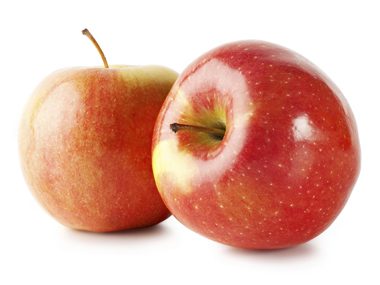Weight control is all about making small changes that you can live with
forever. As you incorporate these minor adjustments into your lifestyle, you'll
begin to see how they can add up to big calorie savings and weight loss. Here
are my top 10 habits to help you turn your dream of weight loss into a
reality:
1. Evaluate your eating habits. Are you eating late at
night, nibbling while cooking, finishing the kids' meals? Take a look around,
and it will be easy to identify a few behaviors you can change that will add up
to big calorie savings.
2. If you fail to plan, plan to fail. You need a strategy
for your meals and snacks. Pack healthful snacks for the times of day that you
know you are typically hungry and can easily stray from your eating plan.
3. Always shop with a full belly. It's a recipe for
disaster to go into the grocery store when you are hungry. Shop from a prepared
list so impulse buying is kept to a minimum. Eating right starts with stocking
healthy food in your pantry and refrigerator.
4. Eat regular meals. Figure out the frequency of your
meals that works best in your life and stick to it. Regular meals help prevent
bingeing.
5. Eat your food sitting down at a table, and from a plate.
Food eaten out of packages and while standing is forgettable. You can wind up
eating lots more than if you sit down and consciously enjoy your meals.
6. Serve food onto individual plates, and leave the extras back at
the stove. Bowls of food on the table beg to be eaten, and it takes
incredible will power not to dig in for seconds. Remember, it takes about 20
minutes for your mind to get the signal from your belly that you are full.
7. Eat slowly, chew every bite, and savor the taste of the
food. Try resting your fork between bites and drinking plenty of water
with your meals.
8. Don't eat after dinner. This is where lots of folks pack
on the extra pounds. If you are hungry, try satisfying your urge with a
non-caloric beverage or a piece of hard candy. Brushing your teeth after dinner
helps reduce the temptation to eat again.
9. If you snack during the day, treat the snack like a
mini-meal. The most nutritious snacks contain complex carbohydrates
and a small amount of protein and fat.
10. Start your day with breakfast. It is the most important
meal of the day. After a long night's rest, your body needs the fuel to get
your metabolism going and give you energy for the rest of the day.
Source: WebMD



 Wheat
is not the same today. It has been agriculturally hybrid, not
genetically lab engineered over some decades to resist fungus, grow more
quickly, and be more pliable for industrial bread baking. As a
consequence, 50-60 years ago wheat containing only five percent gluten
has become 50 percent gluten today.
Wheat
is not the same today. It has been agriculturally hybrid, not
genetically lab engineered over some decades to resist fungus, grow more
quickly, and be more pliable for industrial bread baking. As a
consequence, 50-60 years ago wheat containing only five percent gluten
has become 50 percent gluten today.

























